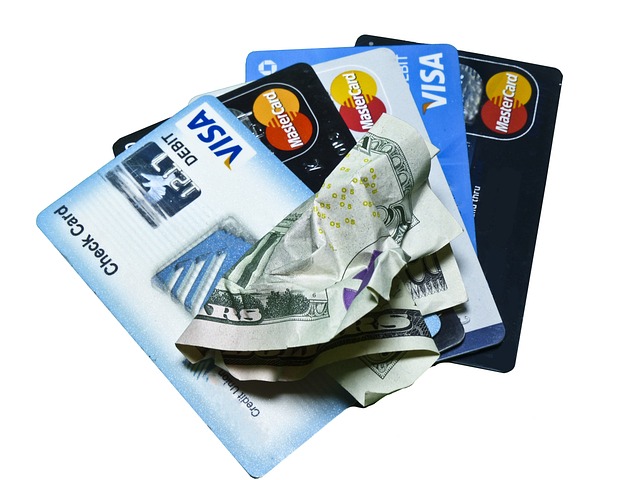When it comes to managing your finances, understanding the factors that affect your credit score is crucial. One aspect that can significantly impact your credit score is the presence of collections on your credit report. Collections such as 11 Charter Communications are accounts that have been sent to a third-party debt collector after the original creditor has been unable to collect payment from you. In this article, we will explore the influence of collections on credit scores and shed light on the importance of addressing them promptly.
1. The Impact of Collections on Credit Scores
Collections can have a negative impact on your credit score. When a collection is reported on your credit report, it signals to lenders and credit bureaus that you have had difficulties in repaying your debts. As a result, your credit score may decrease, making it more challenging to obtain credit in the future. The exact impact of collections on your credit score can vary depending on various factors, including the type and amount of the collection, as well as the overall information on your credit report.
2. Calculation of Credit Scores
Credit scores are calculated using various algorithms developed by credit scoring models like FICO and VantageScore. While the exact formulas used by these models are proprietary, we can provide some general insights into how collections may affect your credit score.
One of the most widely used credit scoring models, FICO, takes into account the presence of collections when determining your credit score. The impact of collections on your score depends on several factors, including the number of collections, the total amount owed, and the recency of the collections. Generally, the more collections you have, the more negative impact they can have on your credit score.
3. Addressing Collections on Your Credit Report
It’s essential to address collections on your credit report proactively. Here are some steps you can take to mitigate their impact:
Verify the Accuracy of the Collection
Start by carefully reviewing the collection item on your credit report. Ensure that it is accurate and belongs to you. Mistakes can happen, and you don’t want to suffer the consequences of an incorrect collection item. If you believe there is an error, you have the right to dispute it with the credit bureaus and the collection agency.
Negotiate a Settlement
If the collection item is valid, it’s generally beneficial to address it rather than ignoring it. Contact the collection agency to understand the details of the debt and explore the possibility of negotiating a settlement. In some cases, you may be able to settle the debt for less than the total amount owed. Be sure to get any settlement agreement in writing before making any payments.
Paying off the Collection
If you can afford to pay off the collection in full, doing so can help improve your credit score over time. Paying off collections demonstrates to future lenders that you are actively working to resolve your outstanding debts. Once you’ve paid off the collection, be sure to request a letter of satisfaction or a receipt as proof of payment.
Consider the Impact of Pay for Delete
In certain situations, you may be able to negotiate a pay-for-delete arrangement with the collection agency. This agreement involves paying off the collection in exchange for the collection agency removing the negative information from your credit report. While pay-for-delete arrangements are not guaranteed and may require careful negotiation, they can be a viable option to improve your credit score.
4. Patience and Persistence
It’s important to remember that rebuilding your credit takes time and effort. Even after you’ve paid off a collection, it may still remain on your credit report for up to seven years from the date of the first delinquency. However, as time passes and you continue to make positive financial
decisions, the impact of collections on your credit score will gradually diminish.
Related article: Do collections go away after paying?
5. Establishing Positive Credit Habits
In addition to addressing collections, focusing on establishing positive credit habits is crucial for improving your credit score. Here are a few key practices to consider:
Pay Your Bills on Time
Consistently paying your bills on time demonstrates financial responsibility and helps build a positive credit history. Late payments can have a detrimental effect on your credit score, so it’s essential to prioritize timely payments.
Maintain Low Credit Utilization
Credit utilization refers to the percentage of your available credit that you’re currently using. Keeping your credit utilization below 30% is generally recommended. By using credit responsibly and keeping your balances low, you show lenders that you can manage credit wisely.
Diversify Your Credit Accounts
Having a mix of different types of credit accounts, such as credit cards, loans, and mortgages, can contribute positively to your credit score. This demonstrates that you can handle different types of credit responsibly.
Regularly Monitor Your Credit Report
Monitoring your credit report regularly allows you to stay informed about any changes or potential errors. By identifying and addressing issues promptly, you can protect your credit score from unnecessary damage.
In conclusion, collections can have a negative impact on your credit score. However, by taking proactive steps to address collections, establishing positive credit habits, and practicing financial responsibility, you can improve your credit score over time. Remember, patience and persistence are key when it comes to rebuilding your credit. Stay committed to your financial goals, and you’ll be on your way to a healthier credit profile.
📣 Repair Your Credit with Masters Credit! 🚀
Are you tired of dealing with the consequences of a poor credit score? Don’t let past financial setbacks hold you back any longer! Take control of your credit and pave the way for a brighter financial future with Masters Credit.
🌟 Masters Credit: Your Trusted Credit Repair Partner 🌟
🔧 At Masters Credit, we specialize in helping individuals like you repair and rebuild their credit. With our expertise and proven strategies, we’ve assisted countless clients in achieving their credit goals and regaining financial freedom.
✨ Discover the Benefits of Working with Masters Credit ✨
1️⃣ Professional Guidance: Our team of experienced credit experts understands the complexities of credit repair. We’ll guide you through the process, providing personalized advice tailored to your unique situation.
2️⃣ Tailored Solutions: We create customized credit repair solutions to address your specific needs. Whether you’re struggling with late payments, collections, or other credit issues, our comprehensive approach will help you overcome challenges.
3️⃣ Proven Results: With a track record of success, Masters Credit has helped individuals from all walks of life restore their creditworthiness. Our strategies are designed to optimize your credit score and open doors to better financial opportunities.
💼 Take the First Step Toward Credit Repair 💼
📞 Call us now at 1-844-620-8796 to schedule your FREE consultation. Our friendly and knowledgeable team will assess your credit situation and provide you with valuable insights to kickstart your credit repair journey.
🌐 Visit our website at https://www.masterscredit.com/ to learn more about our services and read success stories from satisfied clients.
💪 Don’t Wait! Act Now for a Brighter Financial Future! 💪
Take the initiative and partner with Masters Credit to repair your credit today. Experience the peace of mind that comes with a healthy credit score and unlock the doors to financial opportunities. Contact us now for your free consultation, and let’s start building a better credit future together!
🔒 Masters Credit: Your Trusted Path to Credit Restoration! 🔒







Leave A Comment